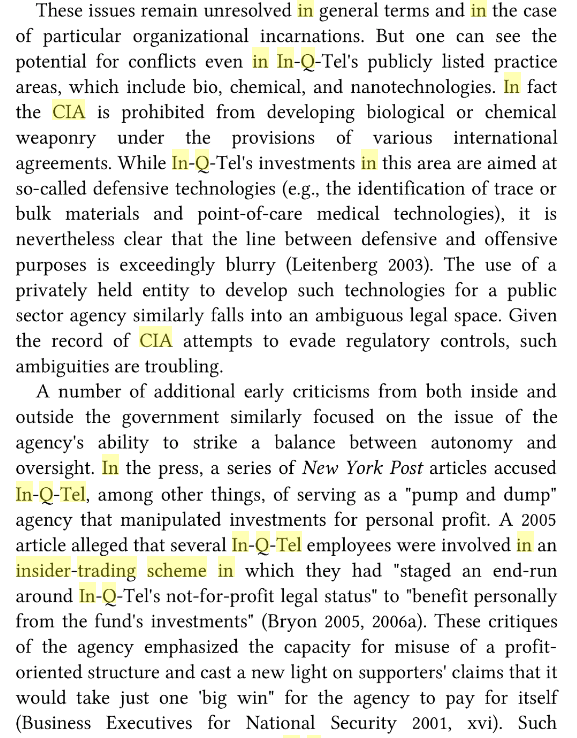Although In-Q-Tel is a nonprofit organization funded by the CIA, its 50 current and 35 former employees get to profit from its successes.
Employees are required to contribute 20 percent of their pay to a fund that invests with In-Q-Tel in each equity deal. When In-Q-Tel cashes out of a winning investment, its employees cash out as well. Any losses in the fund are also shared by employees.
Chief executive Gilman Louie, a former computer-gaming-company executive who has run In-Q-Tel from the start, said the investment fund was set up so employees would have a stake in their work, just as in a private venture capital firm.
"We're competing for talent with high-tech companies and venture capital firms," Louie said. "We can't offer stock options, but we came up with a compensation system we thought was fair and kept employees' skin in the game."
All of Louie's profit from the employee "side fund" is donated to a charity to benefit the families of CIA officers killed in the line of duty, and no trustees participate in any investments.
The compensation system received its first public attention this spring, when In-Q-Tel and its employee fund cashed out of Ionatron Inc., an Arizona company that developed what in effect is an electrical ray gun that delivers a targeted shock of electricity along a laser beam.
The ray "fries" all the electronics in anything it hits. Louie said In-Q-Tel became interested in the technology as a nonlethal way to disable automobiles that might be carrying bombs. Before In-Q-Tel signed a contract with the company in October 2003, Louie said, executives gave him a demonstration. "They zapped an old BlackBerry," he said.
In-Q-Tel's contract included payments to Ionatron to develop the technology and the option to license it. Ionatron sold In-Q-Tel a warrant to buy $500,000 worth of Ionatron stock, which it did for less than $1 a share.
In 2004, Ionatron merged with a publicly traded shell company, making it a Nasdaq-listed stock, and the company began publicizing interest in its technology by the government, particularly the Defense Department.
In-Q-Tel liquidated its stake in Ionatron in March, one year after exercising its stock warrants. The company's stock price had climbed to more than $10 a share. More than 45 employees profited from the Ionatron sale, and 17 of them made more than $50,000 each, according to filings with the Securities and Exchange Commission. Ionatron closed Friday at $8.26 a share.
In-Q-Tel sold its stake in Ionatron for more than $5 million, according to SEC filings. The CIA Officers Memorial Foundation, to which Louie gave his Ionatron shares, sold 9,917 shares last month for more than $80,000.
A New York Post business columnist who wrote about the stock sales called it a "pump-and-dump" scheme because the price dropped shortly after In-Q-Tel and its employees sold their stock. He also criticized In-Q-Tel employees who benefited personally from their stewardship of government money.

Hi! I am a robot. I just upvoted you! I found similar content that readers might be interested in:
http://www.washingtonpost.com/wp-dyn/content/article/2005/08/14/AR2005081401102.html
Downvoting a post can decrease pending rewards and make it less visible. Common reasons:
Submit